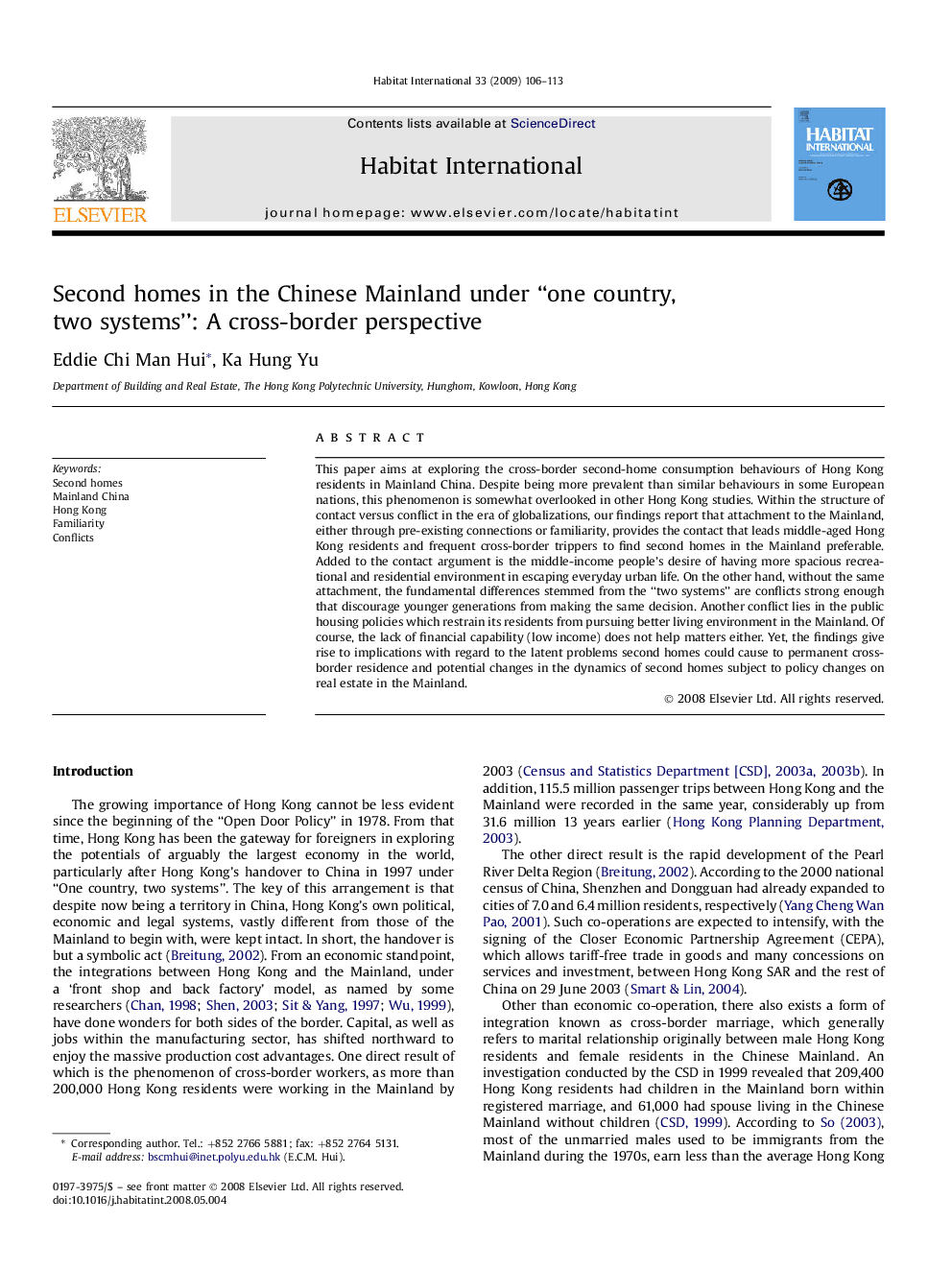| Article ID | Journal | Published Year | Pages | File Type |
|---|---|---|---|---|
| 1048484 | Habitat International | 2009 | 8 Pages |
This paper aims at exploring the cross-border second-home consumption behaviours of Hong Kong residents in Mainland China. Despite being more prevalent than similar behaviours in some European nations, this phenomenon is somewhat overlooked in other Hong Kong studies. Within the structure of contact versus conflict in the era of globalizations, our findings report that attachment to the Mainland, either through pre-existing connections or familiarity, provides the contact that leads middle-aged Hong Kong residents and frequent cross-border trippers to find second homes in the Mainland preferable. Added to the contact argument is the middle-income people's desire of having more spacious recreational and residential environment in escaping everyday urban life. On the other hand, without the same attachment, the fundamental differences stemmed from the “two systems” are conflicts strong enough that discourage younger generations from making the same decision. Another conflict lies in the public housing policies which restrain its residents from pursuing better living environment in the Mainland. Of course, the lack of financial capability (low income) does not help matters either. Yet, the findings give rise to implications with regard to the latent problems second homes could cause to permanent cross-border residence and potential changes in the dynamics of second homes subject to policy changes on real estate in the Mainland.
